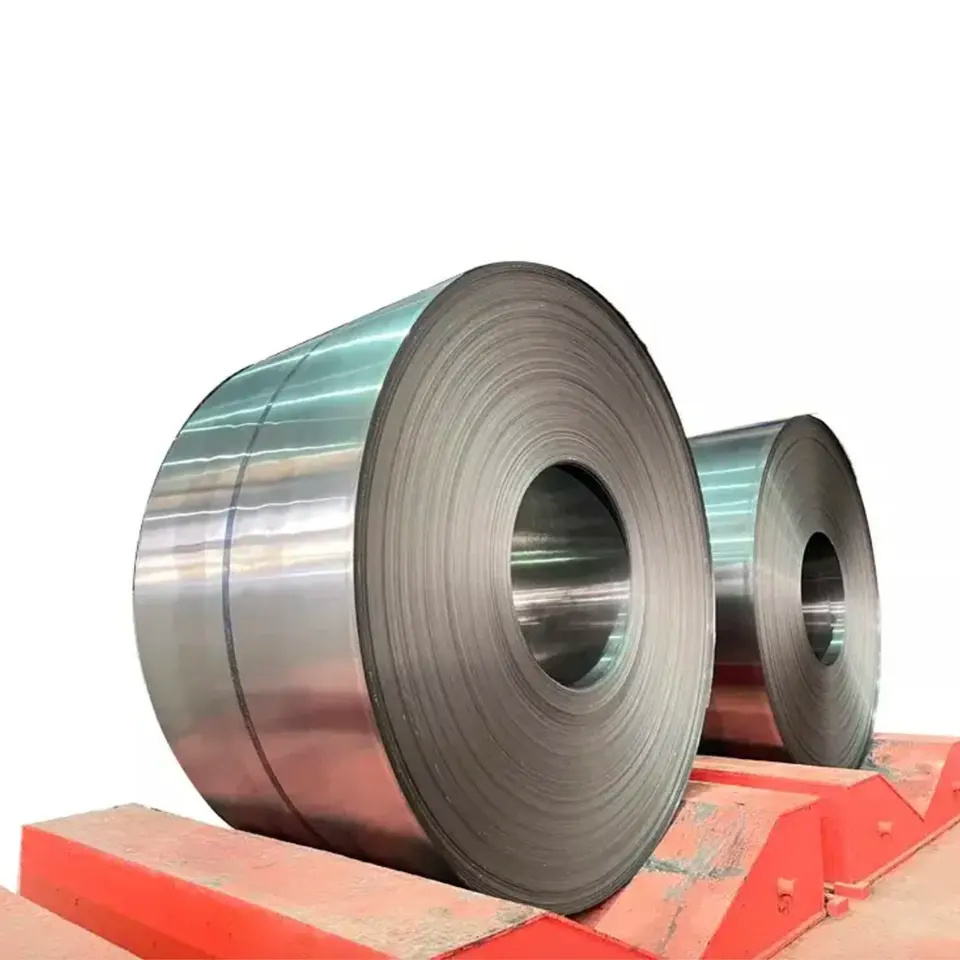In today's fiercely competitive global market, stainless steel manufacturers must find ways to stand out and gain an edge. One powerful strategy is to leverage ISO certifications to demonstrate a commitment to quality, sustainability, and customer satisfaction. By achieving certifications such as ISO 9001 for quality management and ISO 14001 for environmental management, stainless steel companies can improve their processes, reduce costs, and enhance their reputation with customers. This article explores how ISO certifications can be a game-changer for stainless steel manufacturers looking to succeed in a challenging landscape.
The Importance of Quality in Stainless Steel Manufacturing
Quality is paramount in the stainless steel industry. Manufacturers must produce products that meet strict specifications for strength, durability, corrosion resistance, and aesthetic appeal. Even minor defects or variations can lead to costly rework, delays, and customer dissatisfaction.
Implementing a quality management system based on ISO 9001 helps stainless steel manufacturers consistently meet customer requirements and regulatory standards. The ISO 9001 framework provides a systematic approach to managing quality, from raw material procurement to final inspection and delivery. By following documented procedures, conducting regular audits, and continuously improving processes, manufacturers can minimize defects, reduce scrap and rework, and boost efficiency.
Benefits of ISO 9001 Certification for Stainless Steel Manufacturers
Achieving ISO 9001 certification offers numerous benefits for stainless steel manufacturers, including:
- Improved product quality and consistency
- Increased customer satisfaction and loyalty
- Reduced costs associated with defects, rework, and warranty claims
- Enhanced reputation and credibility in the market
- Greater access to global markets and customers who require ISO certification
- Streamlined processes and increased efficiency
- Better communication and collaboration among employees and departments
Stainless steel is known for its durability and corrosion resistance, making it an ideal material for a wide range of applications. However, not all stainless steel is created equal. Different grades and finishes offer varying levels of performance and aesthetic appeal. By achieving ISO 9001 certification, manufacturers can ensure they are producing high-quality stainless steel products that meet the specific needs of their customers, whether it's mirror stainless steel sheets, decorative stainless steel strips, or hairline stainless steel coils.
Sustainability and Environmental Responsibility in Stainless Steel Production
In addition to quality, sustainability has become a key focus for the stainless steel industry. Customers, regulators, and society at large are increasingly demanding that manufacturers minimize their environmental impact and adopt eco-friendly practices.
Stainless steel is inherently sustainable, as it is 100% recyclable and retains its properties indefinitely. However, the production process can be energy-intensive and generate waste and emissions. By implementing an environmental management system based on ISO 14001, stainless steel manufacturers can systematically identify, control, and reduce their environmental impacts.
ISO 14001 provides a framework for setting environmental objectives, monitoring performance, and continuously improving. Manufacturers can use the standard to optimize their use of resources, minimize waste and pollution, and comply with environmental regulations. Achieving ISO 14001 certification demonstrates a company's commitment to sustainability and can enhance its reputation with environmentally conscious customers.
Benefits of ISO 14001 Certification for Stainless Steel Manufacturers
Some of the key benefits of ISO 14001 certification for stainless steel manufacturers include:
- Reduced environmental impact and carbon footprint
- Improved resource efficiency and cost savings
- Enhanced compliance with environmental regulations
- Increased credibility and trust with customers, regulators, and the public
- Access to markets and customers that prioritize sustainability
- Improved risk management and resilience
- Greater employee engagement and awareness of environmental issues
Leveraging ISO Certifications for Market Differentiation
In the competitive stainless steel market, ISO certifications can be a powerful differentiator. By achieving certifications such as ISO 9001 and ISO 14001, manufacturers can demonstrate their commitment to quality, sustainability, and continuous improvement.
ISO certifications are widely recognized and respected around the world. They provide assurance to customers that a company has implemented robust management systems and follows best practices. In many industries, including automotive, aerospace, and medical devices, ISO certification is a prerequisite for doing business.
By prominently displaying ISO certifications on their website, marketing materials, and products, stainless steel manufacturers can stand out from competitors and attract customers who value quality and sustainability. Certifications can also open doors to new markets and customers that require or prefer ISO-certified suppliers.
Case Studies: Stainless Steel Companies Leveraging ISO Certifications
Many successful stainless steel companies have leveraged ISO certifications to improve their operations and gain a competitive advantage. For example:
-
Outokumpu, a global leader in stainless steel production, has achieved ISO 9001 and ISO 14001 certification across its operations. The company uses its certifications to demonstrate its commitment to quality, sustainability, and customer satisfaction, and to access new markets and customers.
-
Aperam, another major stainless steel producer, has integrated ISO 9001 and ISO 14001 into its management systems. The company has reduced its environmental impact, improved its product quality, and enhanced its reputation with customers by leveraging its certifications.
-
Xinguangyuan, a leading manufacturer of decorative stainless steel products, has achieved ISO 9001 certification to demonstrate its commitment to quality and customer satisfaction. The company uses its certification to differentiate itself in the market and attract customers who value superior craftsmanship and attention to detail.
Implementing ISO Certifications in Stainless Steel Manufacturing
Achieving ISO certification requires a significant investment of time, resources, and commitment from stainless steel manufacturers. The process typically involves the following steps:
-
Conducting a gap analysis to identify areas where the company's current practices differ from the requirements of the relevant ISO standard.
-
Developing and documenting a management system that meets the requirements of the standard, including policies, procedures, and work instructions.
-
Providing training to employees on the management system and their roles and responsibilities.
-
Conducting internal audits to verify that the management system is being effectively implemented and maintained.
-
Undergoing a certification audit by an accredited third-party certification body to assess conformance to the standard.
-
Continuously monitoring, measuring, and improving the management system to ensure ongoing conformance and effectiveness.
Best Practices for Implementing ISO Certifications
To successfully implement ISO certifications and achieve the desired benefits, stainless steel manufacturers should follow these best practices:
- Secure top management commitment and leadership to drive the certification process and embed it into the company culture.
- Engage employees at all levels in the development, implementation, and continuous improvement of the management system.
- Use data and metrics to monitor performance, identify opportunities for improvement, and make evidence-based decisions.
- Regularly communicate progress, successes, and lessons learned to stakeholders, including employees, customers, and suppliers.
- Integrate the management system into daily operations and business processes, rather than treating it as a separate, standalone initiative.
- Continuously assess and improve the management system based on internal audits, customer feedback, and changes in the business environment.
The Future of ISO Certifications in the Stainless Steel Industry
As the stainless steel industry continues to evolve, ISO certifications will likely play an increasingly important role in driving quality, sustainability, and competitiveness. Some of the key trends and developments to watch include:
- The integration of ISO standards with other management systems, such as those for occupational health and safety (ISO 45001), energy management (ISO 50001), and social responsibility (ISO 26000).
- The use of advanced technologies, such as automation, data analytics, and artificial intelligence, to streamline compliance with ISO standards and drive continuous improvement.
- The increasing focus on supply chain management and the extension of ISO certifications to upstream and downstream partners to ensure end-to-end quality and sustainability.
- The potential development of industry-specific ISO standards or guidelines to address the unique challenges and opportunities of the stainless steel sector.
Conclusion
ISO certifications offer a powerful tool for stainless steel manufacturers to differentiate themselves, improve their operations, and meet the evolving needs and expectations of customers and society. By achieving certifications such as ISO 9001 for quality management and ISO 14001 for environmental management, companies can drive efficiency, reduce costs, enhance their reputation, and gain access to new markets and customers.
However, achieving certification is not a one-time event, but rather an ongoing journey of continuous improvement. Stainless steel manufacturers must remain committed to maintaining and enhancing their management systems, engaging employees, and adapting to changing business and regulatory environments.
By embracing ISO certifications as a core part of their business strategy and culture, stainless steel manufacturers can position themselves for long-term success and competitiveness in an increasingly complex and demanding global market. With the right approach and mindset, ISO certifications can be a key differentiator and driver of growth and profitability for years to come.
For more information on how Xinguangyuan can help you leverage ISO certifications to gain a competitive advantage with high-quality stainless steel products like decorative sheets, etched panels, and colored stainless steel, please contact us or visit our website.


